Treating Autoimmune Diseases with Cord Blood
Cord blood may be a permanent treatment for a wide variety of autoimmune diseases. In some clinical trials, stem cells healed damaged organs, regenerated lost blood cells and boosted the body’s natural immune system — this helps fight off infection during the healing process.
What are autoimmune diseases?
Autoimmune diseases occur when the body fights against its own organs and tissues. This may happen in a specific organ, but also occurs throughout the body in different tissue locations. Over time, an autoimmune condition leads to organ damage, and causes severe disorders like lupus, rheumatoid arthritis or type 1 diabetes.
Current treatments include steroids, antibiotics and immune system therapy. However, all of these treatments only reduce symptoms, and patients will need medication for the rest of their lives.
Symptoms of Autoimmune Diseases
Common symptoms for most autoimmune diseases include:
- Nausea
- Weakness
- Sudden loss of appetite
- Weight loss
- Yellowing of eyes and skin
- Back and stomach pain
Stem cell therapy
The umbilical cord contains some of your body’s most valuable stem cells. Researchers find therapies and improve treatment options for cord blood transplants every year. These stem cells come from a donated or privately stored umbilical cord. When a family decides to place their child’s umbilical cord in a bank, the medical staff will remove the cord, just like a normal procedure, and take it into a room where they remove leftover blood. This blood is then shipped to a lab and placed into long-term storage, so it can be used in a treatment whenever necessary.
Bone marrow and peripheral blood procedures also provide stem cells, but usually require an exact match since the cells are used to the donor’s system. However, cord blood cells are younger and more adaptable, which means mismatched stem cells are still useful in treatment. The body has a much smaller chance of identifying these cells as foreign, which means cord blood cells aren’t as likely to cause graft-versus-host disease, where donated cells attack the transplant patient.
Advantages of cord blood treatment
Patients that choose cord blood therapy for an autoimmune disease will have several major benefits when compared to other stem cell sources:
- The patient will have more treatment options. Cord blood cells adapt to different systems faster and with fewer side effects, because the cells are young and “immature”
- Cord blood causes no pain to the donor. The mother and her child are in no danger and won’t experience anything different during the birthing procedure. Removing stem cells from bone marrow requires a painful surgery that may take weeks to recover from
- Stored cord blood can be used almost immediately. Bone marrow and peripheral blood procedures often take days, but cord blood can quickly be removed from storage and shipped to the patient in need of a transplant
- Cord blood cells may multiply faster than bone marrow stem cells, giving the patient an improved recovery time and fewer side effects
Stem cell therapy is already available for many autoimmune diseases. Find out more about cord blood and your family’s storage options here.

